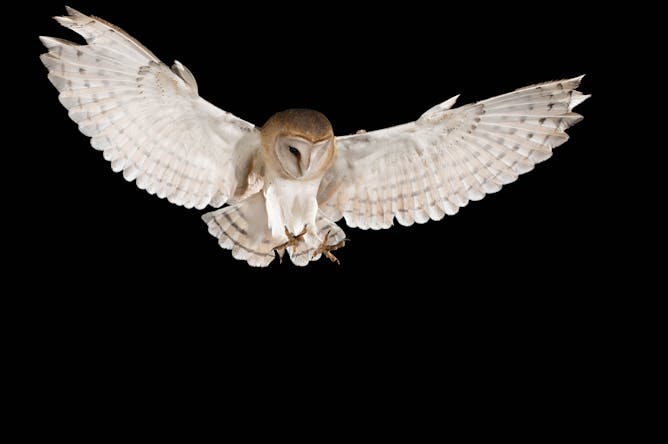|
|
|
Editor's note
|
|
It wasn’t until I stopped using Facebook that I realised how much of my time it was taking up. Despite the fact I often came across posts that bored or annoyed me, I would just keep scrolling until I finally found something that looked interesting. And then, if it proved to be clickbait or followed by mindless or outrageous comments, I’d just go back to scrolling for something else. Or check my messages. Or look at that photo album I’d been tagged in.
New research from Monideepa Tarafdar and her colleagues suggests I’m not alone. After surveying hundreds of Facebook users, they found that the most common response to feeling stressed by social media was not to stop using it but to simply look for something else within the app to relieve this “technostress”. This risks creating a loop of ever-increasing stress and can even form a symptom of addiction.
Of course, these kind of apps are designed to keep you coming back for more. But simply blaming Silicon Valley won’t fix the problem. We also have to be aware of how our own behaviour in response to problems plays a role in our mental health, and how best to deal with difficult situations. Learning this could help us all live happier lives.
Elsewhere, we look at how human language is shaped by the way our brains are set up to look for certain patterns. And, after his seven year stint as chief scientific adviser to the UK government’s environment department recently came to an end, Ian Boyd gives his view that simply cutting emissions isn’t enough to prevent climate breakdown – we all need to consume less.
|
Stephen Harris
Commissioning + Science Editor
|

|
|
Top story
|

Drazen Zigic/Shutterstock
Monideepa Tarafdar, Lancaster University; Christian Maier, University of Bamberg; Sven Laumer, Friedrich–Alexander University Erlangen–Nürnberg (FAU)
Looking for a short-term fix from the very thing that is causing you long-term problems is a symptom of addiction.
|
Science + Technology
|

FJAH/Shutterstock
Almut Kelber, Lund University; Alexandre Roulin, Université de Lausanne; Luis Martín San José García, Université de Lausanne
Scientists have discovered how the wise old barn owl is so good at catching rodents.
|
|
|
-
David Adger, Queen Mary University of London
Some animals, like rats, learn linguistic patterns better than humans can.
|
|
Environment + Energy
|
-
Ian Boyd, University of St Andrews
Putting all of our eggs in the net zero basket is merely kicking the can down the road.
|
|
Business + Economy
|

MikeDotta / Shutterstock.com
Jackline Wahba, University of Southampton
Jordan has a huge number of Syrian refugees and since 2016 it has let them legally enter the workforce.
|
Politics + Society
|
-
Brian Garvey, University of Strathclyde ; Jose Alves, Federal University of Acre; Maria de Jesus Morais, Federal University of Acre
Huwã Karu Yuxibu, the cultural centre of the Huni Kuin indigenous group in the Amazonian state of Acre, was destroyed by fire in August.
-
Martin J. Bull, University of Salford
The fragile coalition between the League and Five Star Movement has fallen to pieces – and Giuseppe Conte is the last man standing.
|
|
Health + Medicine
|

Gardening gives people the chance to reconnect and relax.
Joshua Resnick/Shutterstock
Yvonne Black, University of Hull
How gardening can make you happier and healthier.
|
Arts + Culture
|

Lucasfilms/Twentieth Century Fox
Toby Neilson, University of Glasgow
If sci-fi films mirror the world's contemporary dystopian anxieties, then over the years Star Wars has gone from nuclear war to environmental collapse.
|
Education
|
-
Angel Urbina-Garcia, University of Hull
In Nordic and Latin American countries, education systems promote well-being and resilience. The UK still has a lot to learn.
|
|
| |
Featured events
|

|
34 Broad Street, Oxford, Oxfordshire, OX1 3BD, United Kingdom of Great Britain and Northern Ireland — University of Oxford
|

|
Berrill Lecture Theatre The Open University Walton Hall, Milton Keynes, Buckinghamshire, MK7 6AA, United Kingdom of Great Britain and Northern Ireland — The Open University
|

|
Here East, Queen Elizabeth Park, London, London, City of, E15 2GW, United Kingdom of Great Britain and Northern Ireland — UCL
|

|
Cambridge Judge Business School, Trumpington Street, Cambridge, Cambridgeshire, CB2 1AG, United Kingdom of Great Britain and Northern Ireland — University of Cambridge
|
|
|
|
| |
| |
| |
| |
| |
|
|
|
|
|
|
|